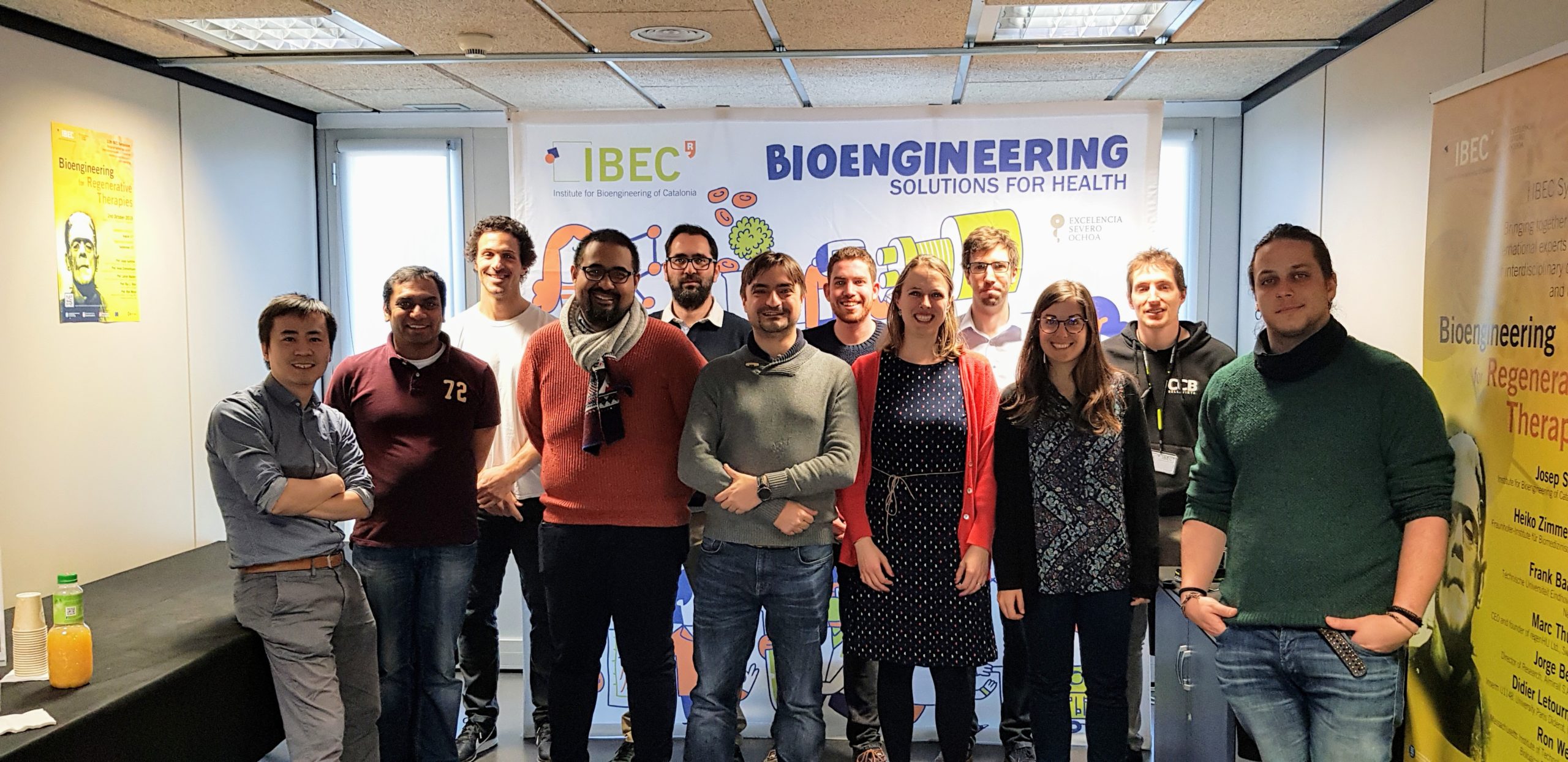The Kick-Off meeting of the FET-Open EU project BLOC (Benchtop NMR for Lab-on-chip), an initiative led by Javier Ramón and Irene Marco from the Institute for Bioengineering of Catalonia in Barcelona (IBEC), took place this week in Barcelona.
The event has brought together all the partners of the project, who have taken the opportunity to introduce themselves and explain their roles and responsibilities. The consortium members also presented the main production and research lines of the project and defined the work plan for the following months.
Among the beneficiaries of BLOC there are two research centres: the Institute for Bioengineering of Catalonia (IBEC), which covers most bioengineering fields, from basic research to medical applications, and the Consorci Institut d’Investigacions Biomèdiques August Pi i Sunyer (IDIBAPS), a public research centre dedicated to translational research in the field of biomedicine.
Moreover, the consortium counts on two high-tech companies: Oxford Instruments (OI), a leading provider of high technology solutions, information and support for industry and research, and Multiwave Technologies AG (MW), a deep science technology company incubating, developing and bringing to market a portfolio of metamaterial innovations.
Main Production and Research Lines
All the partners of BLOC will work together until 2022 to make our lives easier by offering us new approaches to metabolic disease modelling and drug discovery. Concretely, partners will develop a new technology based on magnetic resonance spectroscopy and imaging using dynamic nuclear polarisation (DNP-MR) integrated with organ-on-a-chip (OOC) devices to monitor disease and evaluate drug response in OOC models.
As a proof-of-concept, the project will fabricate a biomimetic multi OOC integrated device composed of liver spheroids and pancreatic islets and develop the necessary DNP-MR hardware and software to study metabolic diseases and for future drug screening applications.
Organ-on-a-chip (OOC) devices offer new approaches to metabolic disease modelling and drug discovery by providing biologically relevant models of tissues and organs in vitro integrated with sensing technology. As such, OOC devices have the potential to revolutionise the pharmaceutical industry by enabling reliable and high predictive in vitro testing of drug candidates.
To date, the capability to miniaturise microfluidic systems and advanced tissue fabrication procedures have enabled researchers to create multiple tissues on a chip with a high degree of control over experimental variables for high-content screening applications.
